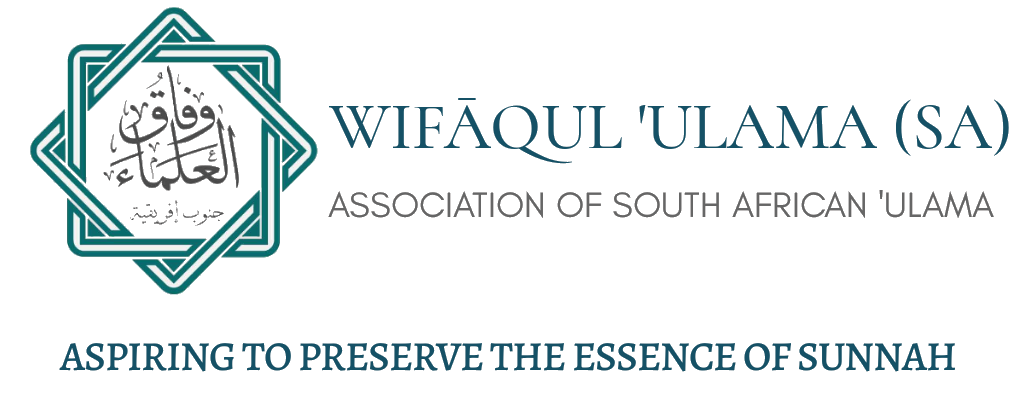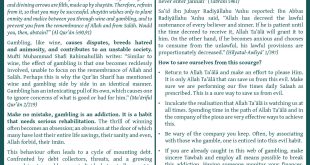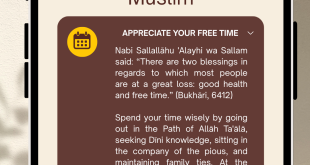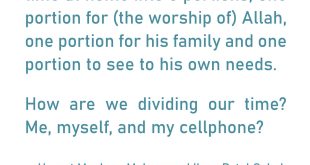Establishment of Darul Uloom Deoband
Muslim rule in India was tragically halted with the fall of the Muslim Empire in 1857. Ulama and Muslim leaders were killed in scores. The future seemed bleak, and even the most optimistic person failed to see a revitalization of Islam in India. Masaajid and madaaris were destroyed, and missionaries worked overtime to convert Muslims to Christianity. At this critical juncture, Moulana Muhammed Qaasim Nanotwi rahimahullah and other Ulama were highly concerned about the Imaan of the masses. After extensive consultation, the world-famous Darul Uloom Deoband was founded on 15 Muharram 1283 (30 May 1866). The fundamental objective of Darul Uloom Deoband was the preservation of Deen.
Benefits to the Muslim world
Together with becoming a means of preserving the Imaan of people in India, Darul Uloom Deoband spread its spiritual blessings throughout the world. Many of our Madaaris, Masaajid and Hifz classes owe their roots to this Madrassa, which began under a pomegranate tree in the village of Deoband. Focusing on Quraan and Ahaadeeth in light of the explanation of the Fuqahaa, a blueprint was set for Madaaris worldwide. Luminaries and great Ulama, the likes of Hazrat Shaikhul Hind Mahmood Hasan, Hazrat Maulana Ashraf Ali Thanwi, Hazrat Maulana Muhammad Ilyaas, Hazrat Allamah Anwar Shah Kashmiri, Hazrat Maulana Hussain Ahmad Madani, Hazrat Maulana Shabbir Ahmad Usmani, Hazrat Qari Muhammad Tayyib Rahimahumullah were born of this same system.
Proven system
The system of disseminating knowledge of Deen without teaching secular subjects is proven by its success and effect over the past 160 years in Deoband. In fact, this has been the system for over 1400 years from the time of Nabi Sallallaahu Alayhi wa Sallam and his illustrious Sahaabah Radhiyallaahu Anhum. Introducing secular subjects poses a significant risk of diluting this legacy.
Cash vs Credit
The nature of man demands that he gives preference to cash over credit. The potentially better salary and worldly position are ‘cash’ benefits of studying secular subjects, while the reward in Aakhirah is a ‘credit’ benefit of Deeni knowledge. Once both are merged, the secular teachings will, in all probability, overpower the importance of Deeni knowledge. There are many examples of Madaaris that took this route and became fully-fledged universities without any Deeni learning. Sheikh Abdullah Siraaajuddin Rahimahullah related an incident regarding Madrassah Khusruwiyya in Halab (Aleppo). He says: “(The madrassah) used to produce expert Ulama and had great asaatiza like Sheikh Mustafa Zarqa, Sheikh Ahmed Kurdi, Sheikh Muhammad Naashid and Sheikh Ibrahim Salqeeni.” After that, a change was engineered by some Ulama who had fallen prey to Westernization (whereby secular subjects were now taught at the Madrassa). The evil effects of this were such that a student would be found reading a book in the English language in class, totally oblivious to the lesson of the blessed Ahaadeeth being taught around him. Jaamiah Abbaasia (now known as Islamia University) in Bahawalpur, Pakistan, was an old Darul Uloom with great asaatizaa like Ml Muhammed Idris Kandhelwi, author of Maariful Quraan and Seeratul Mustafa. (History of Darul Ulum Deoband, Vol 2, Page 100)
After incorporating secular subjects, it is now a fully-fledged university teaching everything but the Deen it was founded to defend. There are many similar examples in our recent history.
The view of our Akaabir
During the time of Hazrat Nanotwi Rahimahullah, a part of the Shura of Madressah Shaahi, Muradabad, planned to include that technical education (science etc.) into the syllabus. When this plan was presented to the Shura, Hadhrat Nanotwi Rahimahullah and other Akaabir said: “We established the Madaaris to create Ulamaa. For technical education, you will find institutes dedicated to that” (Ulama Deoband ki Yaadgaar Tahreere)
Hazrat Moulana Yusuf Binnoori Rahmatullahi Alayh repeatedly mentioned an incident that transpired in Dhaka. There was a special sitting of Ulama in which Senior Ulama of Bangladesh and Pakistan were present. Great personalities like Moulana Binnoori rahimahullah and Mufti Shafi Saheb Rahimahullah were also present. A discussion was held regarding incorporating secular studies into the madressah syllabus. After much debate, the thought crossed Moulana Binnoori Rahimahullah’s mind: “There is no problem in joining the two”. Hazrat Rahimahullah says: “That night, I saw a dream in which I was standing in a Masjid. There was a mat in which the following words were woven:
“النجاة في علوم المصطفي”
Salvation is only in the knowledge of Nabi Sallallahu alayhi wa sallam
In the dream, I placed my fingers into my ears and shouted out with all my strength:
“النجاة في علوم المصطفي سيد السادات”
When I woke up in the morning, I was convinced that only through the knowledge of Nabi Sallallahu Alayhi wa Sallam can success be attained and that there is no use incorporating secular subjects into the syllabus. (Bayyinaat)
Hadhrat Shaikh-ul-Hadeeth Moulana Muhammad Zakariyya Kandhelwi rahmatullahi alaih writes:
“Nowadays, an outbreak has erupted and begun spreading in the form of the concept that Ulama should pursue a degree or engage in some trade or skill for earning their daily bread. This notion is gaining ground, and quite a few Ulama, disgruntled at the reproaches by worldly motivated individuals, have come to regard it as a necessity. Some religious institutions have launched programmes to train students in various technical skills. The truth is that this practice is detrimental to the cause of knowledge. Those who favour this practice present (in support of their views) instances from the lives of some of our pious predecessors who, in order to earn their living, used to do business, etc., notwithstanding their devotion to the cause of knowledge and their great services for the cause of Deen. If Allah Ta’ala affords one such an opportunity, then it is truly the best way to serve the cause of Deen. But with weak minds and bodies in today’s troubled times, we cannot manage both things concurrently. Besides, our greed and love of the world will not allow us to devote sufficient time to the pursuit of knowledge and the cause of Deen for the pleasure of Allah Ta`ala when we find we have the means to increase our earnings. The result of this would be that both the pursuits will commence simultaneously, but before long, the wish to earn more money will overpower the pursuit of knowledge.” (Fazaa’il-e-Sadaqaat, p. 326)
Hadhrat Moulana Ashraf Ali Thanwi rahmatullahi alayh mentioned: “It is regrettable to note that nowadays some of those who are regarded as pious and as Ulama encourage their children to pursue worldly education instead of Deeni education. It seems that these individuals are most probably regretting not acquiring worldly education instead of becoming Ulama. This is such a dangerous situation that, through this, they are blatantly expressing the insignificance of Deeni knowledge that lurks within their hearts. May Allah Ta`ala have mercy on them and grant them hidaayat.” (Malfoozaat Hakeem-ul-Ummat, vol. 4, p. 101)
A British system designed to remove our Imaan
In 1857 a final attempt to liberate India from western rule was made by the Muslims, and at the very least, the British leaders realized that Muslims were such a people that would never be satisfied to be enslaved. This is why the English made a huge policy change.
The very British, who murdered hundreds of thousands of Muslims, now paraded as well-wishers for the Indian people. The objective was that whichever nation doesn’t come under their rule by force and violence, a slow change to their mindset is required, and in this way, they will become isolated, and their origins will be wiped out. They will forget their religious traditions, cultural beliefs and great past. (Majaalis Mufti A’zam)
The very purpose of the British was to eradicate Islam. One of their most potent tools was the schooling system they introduced. The British historian W.W.Hunter writes in “The Indian Musalmans”: “No young man, whether Hindu or Muhammadan, passes through our Anglo-Indian schools without learning to disbelieve the faith of his fathers.” How unfortunate that the very knowledge implemented to destroy Islam is now being given a home in one of the seats of Islamic learning.
The famous poet Akbar Allahabadi wrote:
یوں قتل سے بچوں کے وہ بدنام نہ ہوتا
افسوس کے فرعون کو کالج کی نہ سوجھی
“If only Firawn had thought about establishing colleges, he would not have maligned himself by killing so many children.”
Deoband – an example for other Madaaris worldwide
The Hadith of Nabi Sallallaahu alayhi wa Sallam says: “Whoever institutes a good practice in Islam will have its reward and the reward of whoever acts upon it without diminishing their rewards in the slightest. Whoever institutes an evil practice in Islam will have its sin and the sin of those who act upon it without diminishing their sins in the slightest.” Ṣaḥīḥ Muslim 1017
Darul Uloom Deoband will enjoy the excellent reward for the many madaaris established, taking it as a role model. However, by now including secular studies, it should not be that it now has to bear the burden of other madaaris which may now follow its footsteps. The risk to such a great legacy is definitely not worth it!
May Allah Ta’aala protect the Madaaris and allow them to serve the function they were established for without any hindrance or dilution. Aameen
(Note: An Urdu Version of this letter was addressed and sent to Darul Uloom Deoband)
 Wifāq ul Ulāma (SA) ASSOCIATION OF SOUTH AFRICAN 'ULAMA
Wifāq ul Ulāma (SA) ASSOCIATION OF SOUTH AFRICAN 'ULAMA


